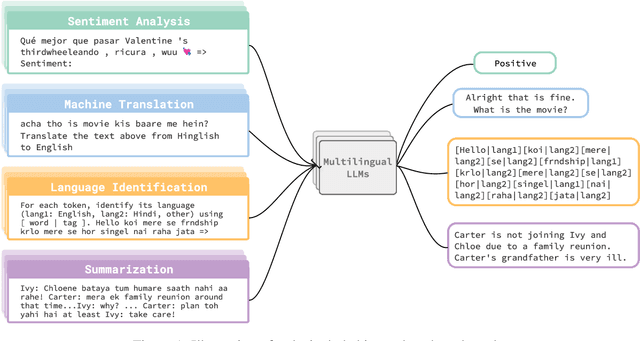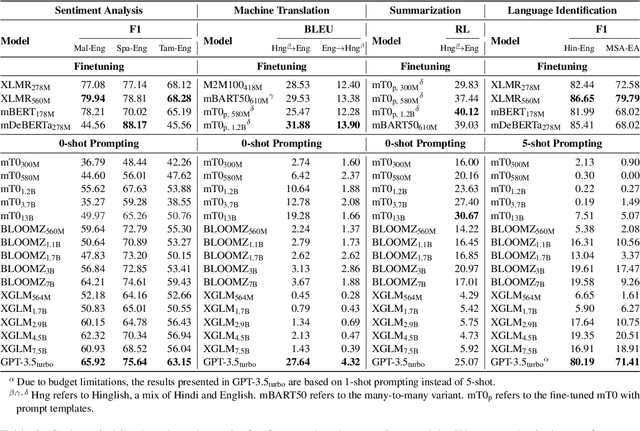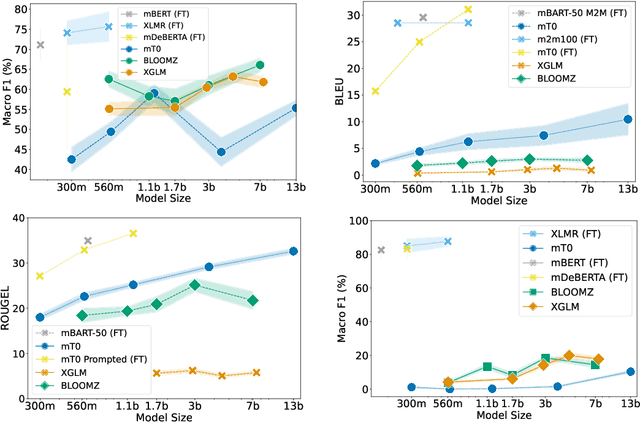Multilingual Large Language Models Are Not (Yet) Code-Switchers
Paper and Code
May 23, 2023



Multilingual Large Language Models (LLMs) have recently shown great capability in various tasks, exhibiting state-of-the-art performance using few-shot or zero-shot prompting methods. While these models have been extensively studied in tasks where inputs are assumed to be in a single language, less attention has been paid to exploring their performance when inputs involve code-switching (CSW). In this paper, we provide an extensive empirical study of various multilingual LLMs and benchmark their performance in three tasks: sentiment analysis, machine translation, and word-level language identification. Our findings indicate that despite multilingual LLMs showing promising outcomes in certain tasks when using zero-/few-shot prompting, their performance still falls short on average when compared to smaller finetuned models. We argue that LLMs that are "multilingual" are not necessarily code-switching compatible and extensive future research is required to fully bridge this gap.
 Add to Chrome
Add to Chrome Add to Firefox
Add to Firefox Add to Edge
Add to Edge